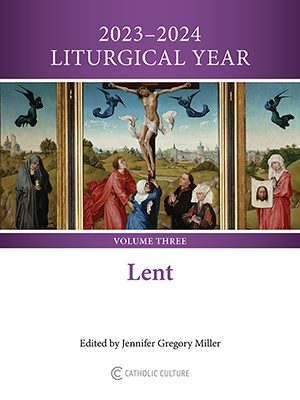Theologian sees ‘remarkably rich’ treatment of theology in Lumen Fidei
July 15, 2013
Free eBook:

|
| Free eBook: Liturgical Year 2023-2024, Vol. 3 |
Writing in L’Osservatore Romano, a Boston College theology professor says that Pope Francis “sets forth briefly, but in a remarkably rich way, an understanding of the task of theology” in section 36 of his first encyclical, Lumen Fidei. “From one perspective, of course, it is a traditional view (as the footnote reference to Bonaventure and Aquinas shows),” says Father Robert Imbelli. “But it places that traditional understanding into an intersubjective context that brings out, in a new and deeper way, its significance and implications.” In section 36, Pope Francis writes:
Since faith is a light, it draws us into itself, inviting us to explore ever more fully the horizon which it illumines, all the better to know the object of our love. Christian theology is born of this desire. Clearly, theology is impossible without faith; it is part of the very process of faith, which seeks an ever deeper understanding of God’s self-disclosure culminating in Christ. It follows that theology is more than simply an effort of human reason to analyze and understand, along the lines of the experimental sciences. God cannot be reduced to an object. He is a subject who makes himself known and perceived in an interpersonal relationship. Right faith orients reason to open itself to the light which comes from God, so that reason, guided by love of the truth, can come to a deeper knowledge of God. The great medieval theologians and teachers rightly held that theology, as a science of faith, is a participation in God’s own knowledge of himself. It is not just our discourse about God, but first and foremost the acceptance and the pursuit of a deeper understanding of the word which God speaks to us, the word which God speaks about himself, for he is an eternal dialogue of communion, and he allows us to enter into this dialogue. Theology thus demands the humility to be "touched" by God, admitting its own limitations before the mystery, while striving to investigate, with the discipline proper to reason, the inexhaustible riches of this mystery.
Theology also shares in the ecclesial form of faith; its light is the light of the believing subject which is the Church. This implies, on the one hand, that theology must be at the service of the faith of Christians, that it must work humbly to protect and deepen the faith of everyone, especially ordinary believers. On the other hand, because it draws its life from faith, theology cannot consider the magisterium of the Pope and the bishops in communion with him as something extrinsic, a limitation of its freedom, but rather as one of its internal, constitutive dimensions, for the magisterium ensures our contact with the primordial source and thus provides the certainty of attaining to the word of Christ in all its integrity.
For all current news, visit our News home page.
Further information:
All comments are moderated. To lighten our editing burden, only current donors are allowed to Sound Off. If you are a current donor, log in to see the comment form; otherwise please support our work, and Sound Off!







